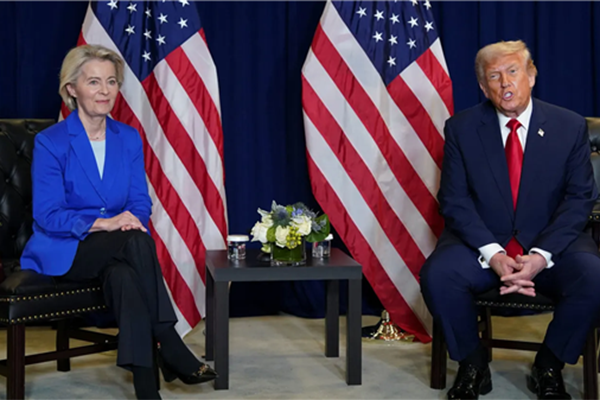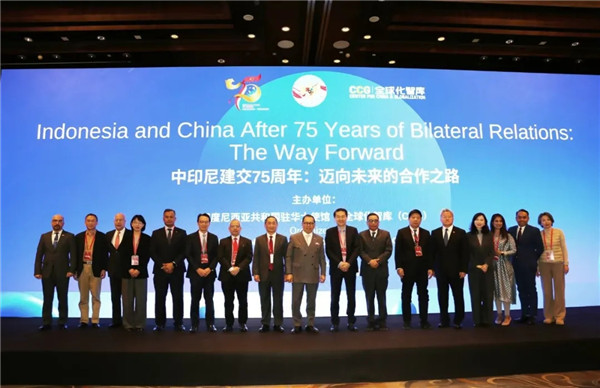CCG Launches Annual Bluebook Report on Chinese Studying Abroad 2015
June 05 , 2019From: China Daily
Higher education in Asia is becoming increasingly regionalized, as more and more Chinese students chose to study in neighboring countries along the “One Belt, One Road” route with close economic and cultural relations with China, according to a new Bluebook report on Chinese studying abroad 2015 by the Center for China & Globalization (CCG) released on Oct. 21, 2015.
The book, co-published by CCG and the Social Academic Press, provides analysis of the new trends and features of Chinese studying abroad between 2014 and 2015 and offers relevant policy recommendations. The key issues discussed in this book include higher education regionalization in Asia, education in the countries along the “One Belt, One Road”, entrepreneurship education abroad, underage Chinese students studying abroad, and foreign students in China.
At the bluebook launching ceremony, Executive Director of the Social Academic Press Mr. Cai Jihui and CCG Secretary General Dr. Mabel Miao Lu introduced the report to audience. CCG President Dr. Wang Huiyao,Jiangsu Talent Development Institute Director Kong Jie and New Oriental Education & Technology Group President Zhou Chenggang participated in the Q&A session following the introduction of the report.
Overseas study has been a priority issue on China’s political agenda ever since the national conference on that subject was held at the end of 2014. As President Xi Jinping noted at a national united front working meeting in May, 2015, the Chinese studying abroad play a major role in China’s talent cultivation. In making that comment, Xi sent a strong political signal on the importance of Chinese students studying overseas for the national leadership of the country.
In response to the government’s “One Belt, One Road” initiatives, more and more Chinese companies are investing in the countries along the route. However, they face challenges in finding talented people who understand both Chinese culture and the local situation of the states targeted for investment. The best solution for this problem is surely the exchange of students between China and “One Belt, One Road” countries. It was against such a backdrop that the Bluebook report on Chinese studying abroad 2015 was compiled. The highlights of the report include:
1. The regionalization of higher education in Asia is gaining momentum as the countries on the continent step up the efforts in student exchange and education cooperation.
2. States along the “One Belt, One Road” that have close economic relations with China are becoming popular destinations for Chinese students wishing to study overseas. The Asian Infrastructure Investment Bank should increase funding for education by establishing a “One Belt, One Road” fund for studying abroad.
3. Middle-income countries have become the major source of international students. Formerly popular destinations such as Spain and Belgium are being replaced by emerging countries like China. At the same time, international education hubs, particularly Canada. Malaysia, Saudi Arab and UAE, are gaining popularity among international students.
4. In terms of the top academic subjects for Chinese students abroad, business is losing its edge while the appeal of international relations is growing.
5. The number of returning Chinese students continues to go up.
6. There are more Chinese students studying in the United States than Americans studying in China. The Chinese government should employ more policy innovation to attract greater numbers of international students and capitalize on “talent bonus” that goes with that.
7. The increase in the number of underage Chinese studying abroad diminishes the pool of high-quality students for domestic universities/colleges. Chinese institutions of higher education are advised to employ internationalization strategies to attract students from all over the world.
8. Chinese students face a growing crisis of credibility abroad. They should receive more education regarding foreign laws and regulations regarding universities and university instruction to boost their awareness of such matters.
9. The demand for entrepreneurship education is rising abroad. China should strengthen cooperation with other countries in this regard to cultivate more internationalized talent with an entrepreneurial spirit.
10. The number of legalized studying abroad intermediary agencies in China is decreasing. The market is still highly segmented and lacks any dominant, leading player(s).
Dr. Wang Huiyao pointed out that China’s economy has entered into the “new normal” and its reform now stands at a critical juncture. The increased number of Chinese studying abroad and foreigners studying and working in China can generate a greater talent and economic reform bonus. That, in turn, will promote the Chinese economy, accelerating its international expansion and boosting its soft power and global competitiveness.
Starting 2012, CCG has released bluebook reports on Chinese studying abroad for four consecutive years. Established in 2008, CCG is one of the leading independent think tanks in China and employs over 80 full-time staff around the world. CCG publishes around 10 Bluebook reports every year, including the study reports on Chinese studying abroad, Chinese returnees, international migration, overseas Chinese professionals, and globalization of Chinese companies.






